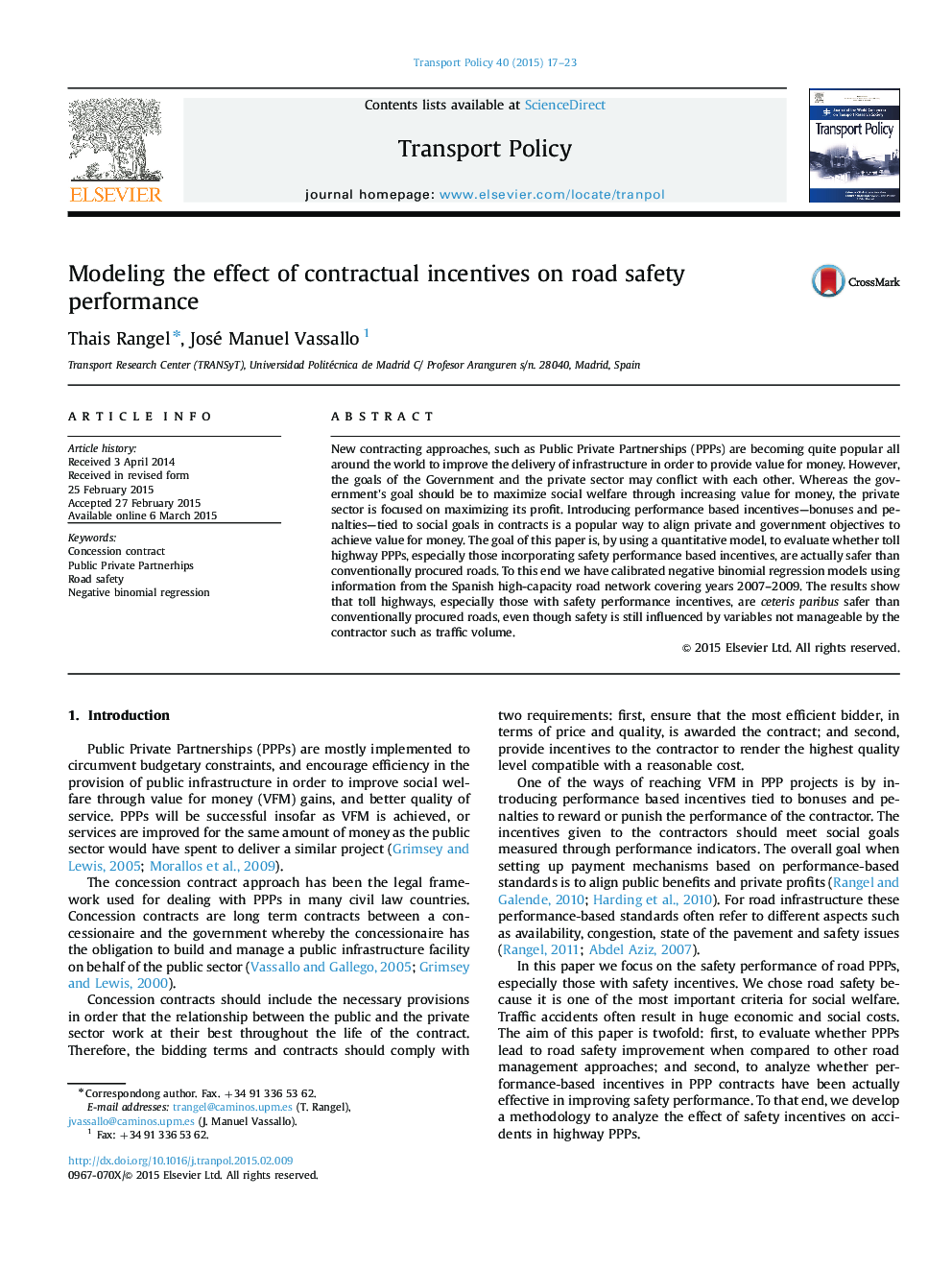| Article ID | Journal | Published Year | Pages | File Type |
|---|---|---|---|---|
| 1064700 | Transport Policy | 2015 | 7 Pages |
•Contractual incentives on road safety performance are becoming popular in Public Private Partnerships.•Performance based incentives is a popular way to align private and government objectives to achieve value for money.•The results show that safety incentives have a positive influence on road safety.•Toll highways safer than conventionally procured roads.
New contracting approaches, such as Public Private Partnerships (PPPs) are becoming quite popular all around the world to improve the delivery of infrastructure in order to provide value for money. However, the goals of the Government and the private sector may conflict with each other. Whereas the government's goal should be to maximize social welfare through increasing value for money, the private sector is focused on maximizing its profit. Introducing performance based incentives—bonuses and penalties—tied to social goals in contracts is a popular way to align private and government objectives to achieve value for money. The goal of this paper is, by using a quantitative model, to evaluate whether toll highway PPPs, especially those incorporating safety performance based incentives, are actually safer than conventionally procured roads. To this end we have calibrated negative binomial regression models using information from the Spanish high-capacity road network covering years 2007–2009. The results show that toll highways, especially those with safety performance incentives, are ceteris paribus safer than conventionally procured roads, even though safety is still influenced by variables not manageable by the contractor such as traffic volume.
